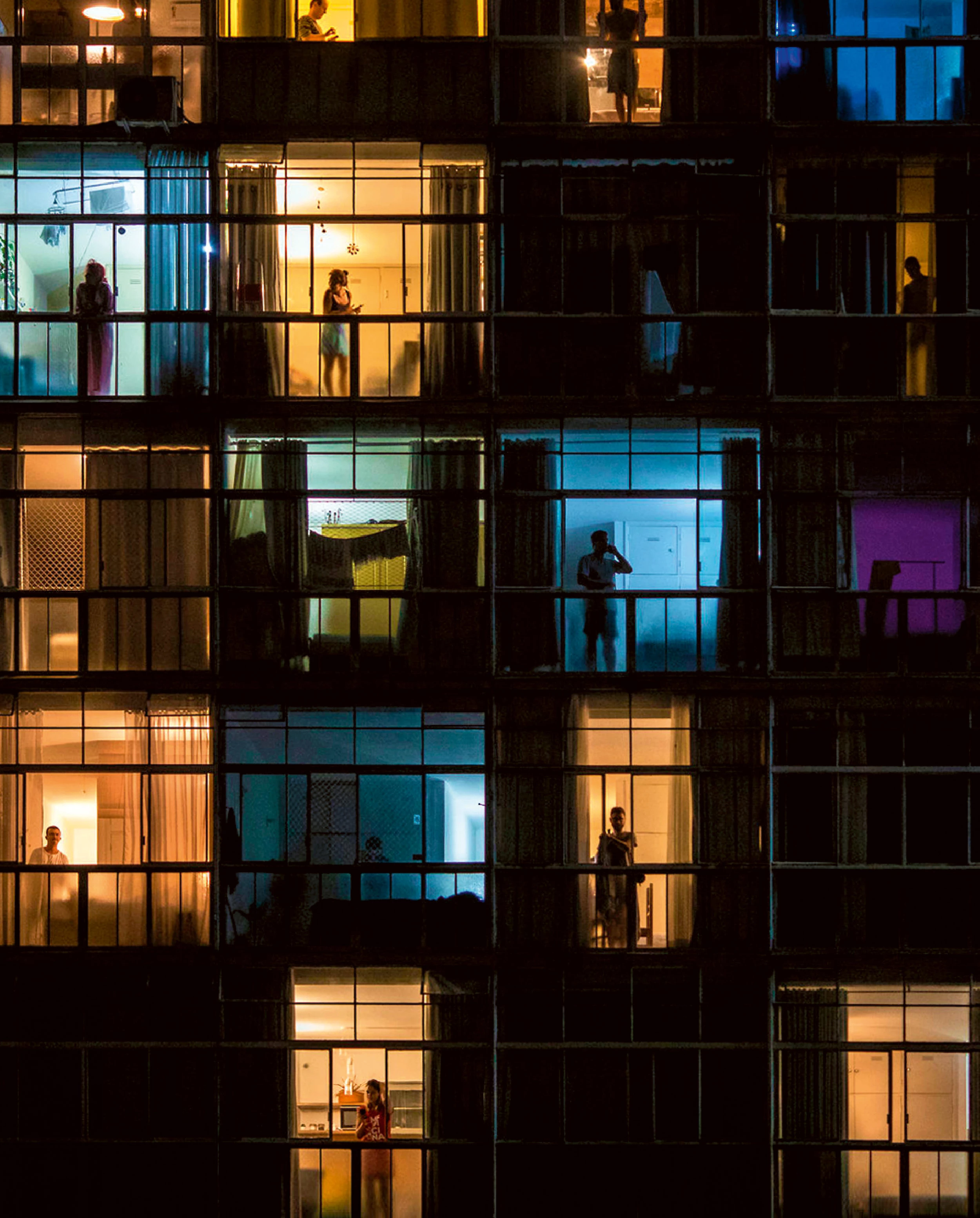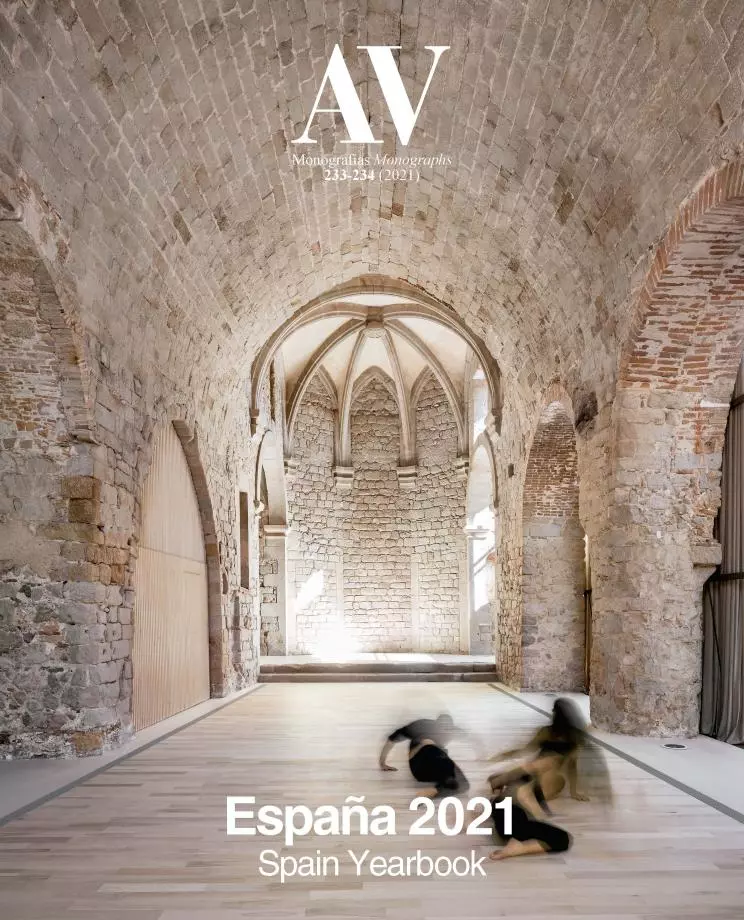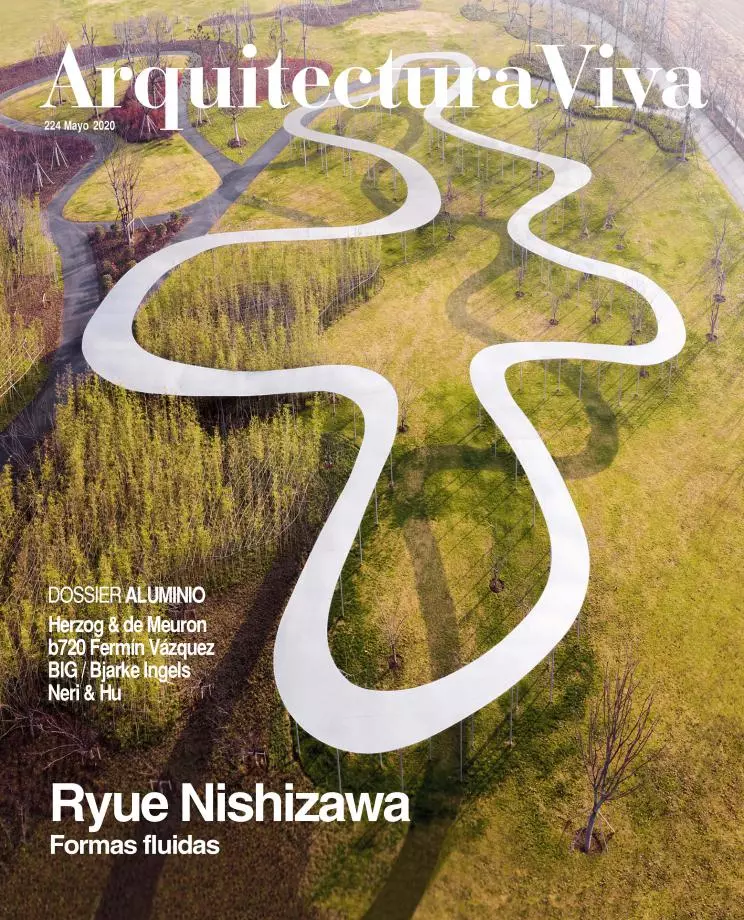
Confinement is easier to endure than uncertainty. Practicing il mestiere di vivere, private space takes on a different meaning, because the intimate shelter becomes a prison cell, and ‘private’ is translated as ‘deprived’ of contact with others. In Huis Clos, a play that opened in Paris during the Occupation, Jean-Paul Sartre represents hell as a windowless room where ‘L’enfer, c’est les autres.’ Avoiding contact today to hinder the dissemination of the virus, we discover that, unlike what the playwright defends, paradise is always the others. Forced to comply with social isolation, and faced with domestic internment, we feel the absence of physical contact with others as an amputation, but nothing is comparable to the anxiety caused by the shadows cast over our personal and collective future.
With cities under curfew, we participate in the liturgy of the balconies and compulsively consume news from the media and fake news from the web, trying to catch a glimpse of the horizon. Ignorant of the final toll of victims, we entrust our survival to the routines of protection, but in the end we are dragged by the whirlwind of chance. Maybe the world that emerges from this pandemic convulsion is more reasonable in the consumption of resources, fairer in their distribution, and safer from catastrophes: living with less need not mean living worse. But perhaps the new economic, social, and geopolitical landscape will be one of disorder and conflict, more authoritarian and less free, because the virus has unveiled the limits of national and European governance, not to mention the lack of a global one.
Searching for guidance in personal memory, I remember my microbiologist father and his fiction heroe, Dr. Arrowsmith, protagonist of the novel by Sinclair Lewis and the later film by John Ford, a physician and researcher who faces an anthrax epidemic and after that a bubonic plague, and which shows well the ethical dilemmas of science in extreme situations. Today we recover the literary history of plagues, from Boccaccio to Camus, underlining both the anxiety of populations and the efforts of healthcare workers, but we might not be putting enough emphasis on the research that supplies remedies and vaccines. In the confinement of their laboratories, and in the virtual community of their findings, these scientists offer the certainties that may let us face the biopolitical unknowns of times to come.







